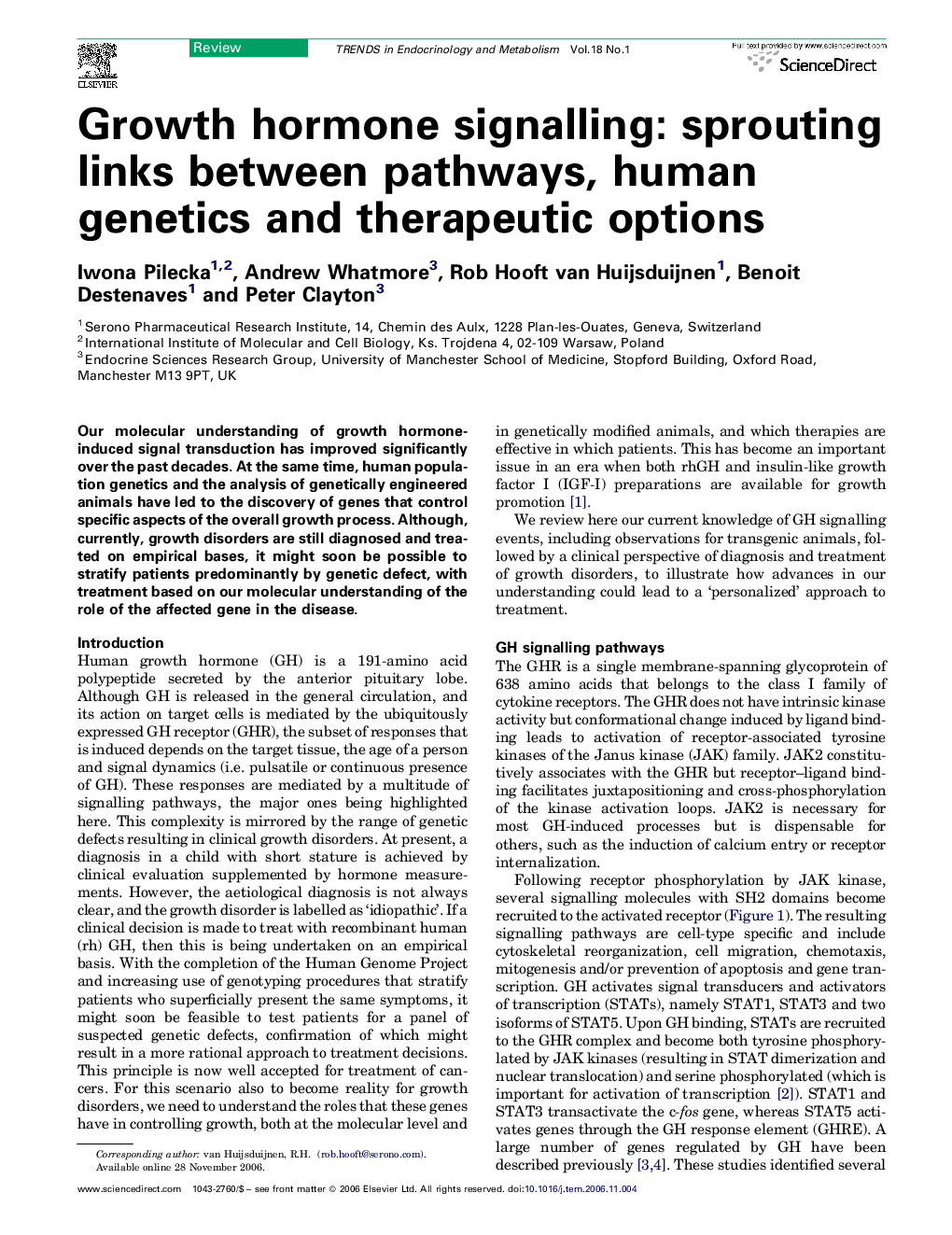| Article ID | Journal | Published Year | Pages | File Type |
|---|---|---|---|---|
| 2811141 | Trends in Endocrinology & Metabolism | 2007 | 7 Pages |
Abstract
Our molecular understanding of growth hormone-induced signal transduction has improved significantly over the past decades. At the same time, human population genetics and the analysis of genetically engineered animals have led to the discovery of genes that control specific aspects of the overall growth process. Although, currently, growth disorders are still diagnosed and treated on empirical bases, it might soon be possible to stratify patients predominantly by genetic defect, with treatment based on our molecular understanding of the role of the affected gene in the disease.
Related Topics
Life Sciences
Biochemistry, Genetics and Molecular Biology
Endocrinology
Authors
Iwona Pilecka, Andrew Whatmore, Rob Hooft van Huijsduijnen, Benoit Destenaves, Peter Clayton,
